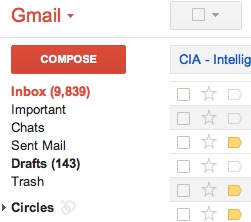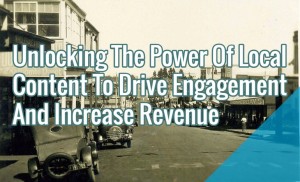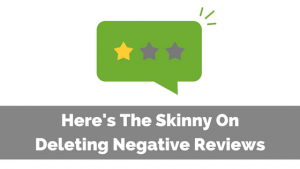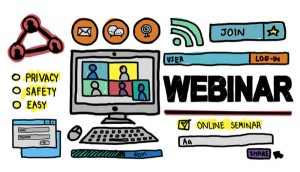What is a CRM?
We can imagine that you have some idea of what a CRM is, since you’ve landed on Contactually’s blog. Or maybe you have no idea. Either is fine, and as the technology space continues to evolve, CRM could change even a year from now. However, it’s still a need for most businesses. The Google searches alone highlight the pressing need for CRMs.

A CRM is defined as Customer Relationship Management. It can be a process, but mainly it’s a solution system to help manage your customer relationships for your business. There are multiple CRMs out there for your business needs, but there is a set of criteria that you should explore to determine the best one for your needs.
What is the best CRM for your needs?
I can’t imagine my marketing life without the help of a marketing automation system, and I can’t even remember the times where I didn’t use it. It would almost be like losing my left arm. My body would feel off balance and although I would have the use of my right arm, something wouldn’t feel right.
Maybe my metaphor is taking things to the extreme, but I believe we all would have the hard time visualizing a life without the day-to-day platforms we use and have grown accustomed to. Even without these things, we’ve all been there with the headache, manual process that comes into play.
We’re a month now into the new year, we’re all aware of the goals that we set and may have looked at the past year with slight dismay on what we could have improved on if we just had the right tool to fix that. Maybe it was your relationship building efforts? Or following up with the right contacts at the right time? Or even generating even more referrals to accelerate your business? Have some of these questions been ruminating in your mind since the pass of the old year into the new?
We want to help answer these questions, especially when you are looking for a new tool and platform like a CRM.
How do you choose a CRM? What are the things you must know? We’ve got the answers below to help solve some of the pain in deciding what CRM is best for you and your needs.
10 Secrets to Find Out What is the Best CRM for Your Needs
1. Take inventory of your contacts.
How many contacts are currently in your possession? Is the number in the hundreds range, thousands, or tens of thousands?
Figuring out just how many contacts are in your database is extremely important in determining what CRM is best for you. Some CRMs are priced according to the number of contacts you have, although there are other factors that may come into play for the price, having the a CRM that fits your contact database size is essential to figure out.
2. Look at the current state of your inbox.
Many people preach the powers of inbox zero and others have productivity systems where email may have a higher counts that work for them. However, when figuring out what CRM is your best option, you should look at the current state of your inbox. If you have a high number of emails, importing those into a new CRM can be overwhelming. Of course, if it’s not overwhelming for you, it’s setting the expectation that you will get to those emails and you aren’t cluttering a new system that you are trying to learn.

So take some time and look at your inbox. How many emails do you have in there that are unread? Should you clear your unread emails in order to start fresh with your new CRM?
3. Try to build some good habits.
Sometimes the term ‘habits’ connotes something negative. From nail biting to smoking, those are classified as ‘bad habits.’ But good habits have a place in our professional lives and setting a precedent for choosing a CRM with a set of ‘good habits’ can help identify how much time you’ll be able or need to dedicate to this new system.
4. What are your team’s needs?
Assuming that you aren’t a solo practitioner, you will have team members who will be using the new CRM. Asking up front what their needs are and aligning with their goals will be useful in deciding on a CRM. It’s also critical to recognize that not every CRM is for teams and not every CRM is made for solo practitioners.
5. How are you managing your time currently?

After you’ve built up some good habits to boost your productivity, it’s time to take a look at your time management strategies. Where is your time going in the day? Are you spending a lot of time trying to manually follow-up with people who you haven’t reached out to in a few weeks? Are you going through your inbox attempting to figure out when was the last time you communicated with someone? Or are you looking at the pipeline you built in a spreadsheet and trying to determine where certain leads are in the buying process?
Without a CRM, your time is probably being placed into one of the categories and you’re doing many tasks manually when you could be spending more time on building the relationships that will better your overall business. From some of those problems above, which is taking the most of your time? If you can figure out your biggest time suck, the CRM with the feature to alleviate that problem will probably be the best for you.
6. What is the state of your pipeline?
How are your hot leads and cold leads doing? Are your hot leads ready to buy? Have your cold leads been reached out to? Look at the current state of your pipeline. A CRM could easily help boost the performance of your pipeline and speed up the process for a lead becoming a sale.
Look at where your blockages are and areas where you could improve this to understand your needs for a CRM from a pipeline standpoint.
7. Evaluate your strongest and weakest relationships.
Who are you always communicating with? Who could you be communicating more with in your network? Evaluating your strongest and weakest relationships will help provide you with a pathway to create segments for you contacts that you can put into your CRM. The segmenting is an exercise to do before you purchase a CRM, but it can also identify if you need to follow-up reminders or complicated nurture flows. Figuring out how you are doing with your relationships, even though your CRM may do a more comprehensive analysis, will tell you what features will benefit you more in this new system.
8. How is your current tech stack doing?
What tools or platforms are you using today? Do you see any gaps or opportunities that you could use to connect together? After you take inventory of your contacts, you should evaluate the tools in your arsenal. Looking at you tool kit will not only show you the gaps in your stack, but also which tools you use the most. And hey, maybe you won’t even need a CRM (unlikely).
9. Would this new CRM be scalable?
You have 100 contacts now, but how many would you have in a year. We would imagine you would have some lift and probably goals to grow your network. So, if you ended up having 1,000 contacts at the end of the year, would your new CRM be able to handle your volume of new contacts?
You new CRM will need to scale with your business growth. If it cannot scale, then you should consider a different option.
10. Can you find the right insights and data?

Contactually’s own feature: Insights
In Greek mythology, there’s the story about Sisyphus. Sisyphus was a deceitful king and had committed a crime against the gods. He was sentenced to push a rock up a hill and once he reached the top with the huge boulder, the boulder would then roll right back down to the bottom of the hill. This was a lifetime sentence.
This dramatic scenario can apply to the systems you use and not having the right data or insights to see what is going on. Maybe you work all the way up that hill working on a huge nurture campaign, but then you just see your results of your labor just quickly decline without knowing what happened. Granted, Sisyphus knew the crime committed and knew what would happen for eternity; however, not having the right data and insights can put you into the vicious, Sisyphean scenario of declining results no matter the effort you put in. Acquiring the right CRM that provides you with the data and insights you need to grow your network and business to its full potential.
Need a helpful list of CRMs? Check out our guide Help! I need a CRM!
Business & Finance Articles on Business 2 Community(83)







